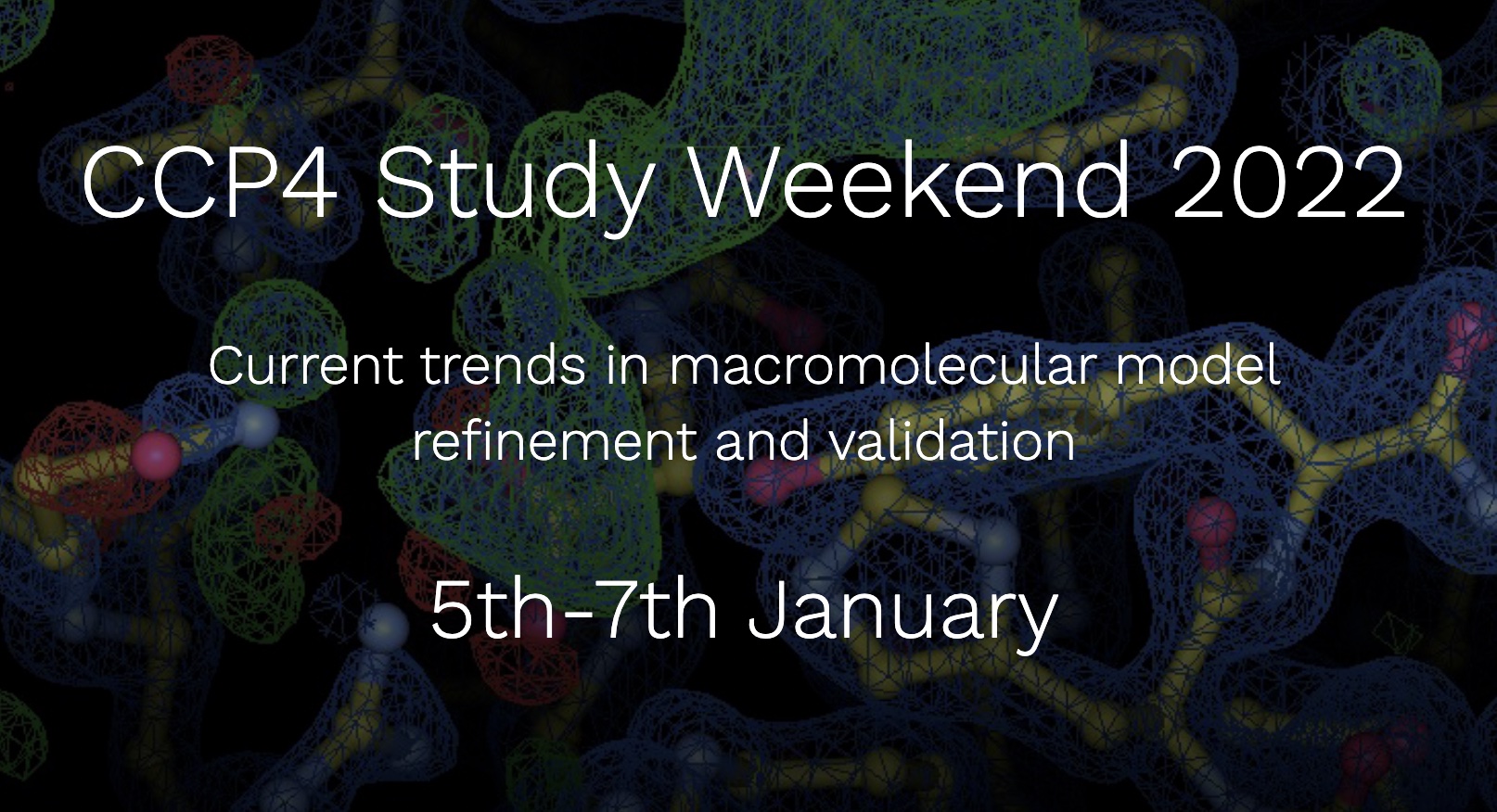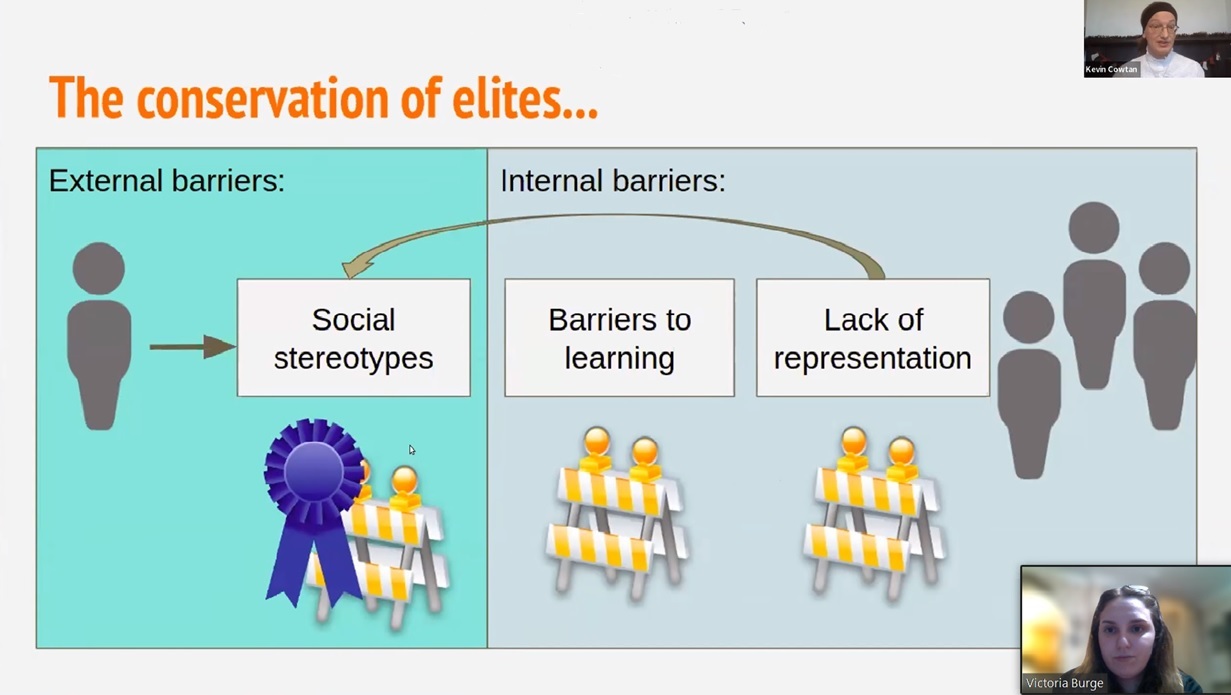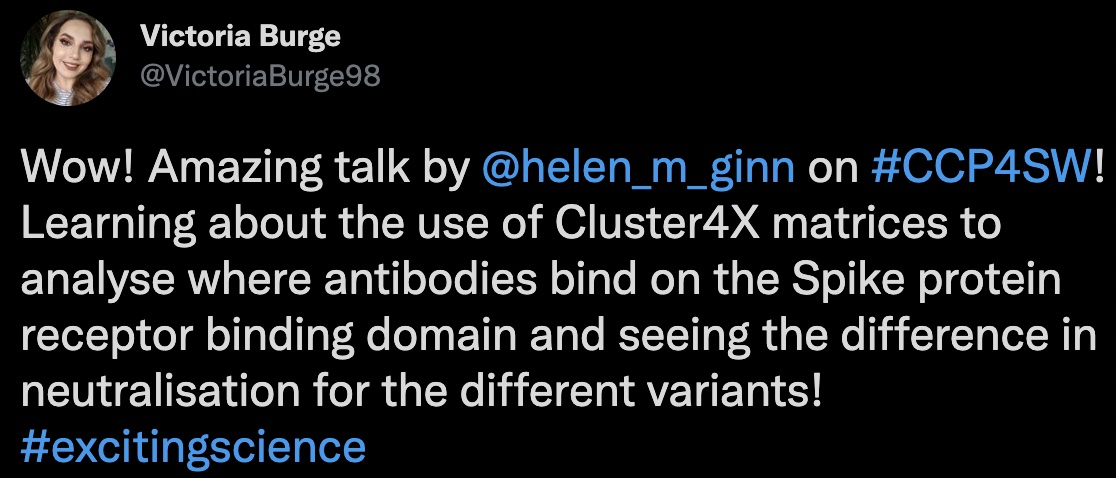
In the first week of January, I was fortunate to (virtually) attend my first CCP4 Study Weekend (CCP4SW).

Each day contained Lunchtime Bytes which enabled a fast-track guide through a choice of programmes. I chose: Guide to the CCP4i2 Graphical Interface (Kyle Stevenson), CCP4mg (Stuart McNicholas) and Refinement (Rob Nicholls). These sessions enhanced basic prior knowledge I had obtained during my undergraduate project and gave an in-depth exploration into the programmes and tutorials of how to use the tools available.
As a first year PhD student, I found them particularly useful to develop my confidence using the programmes which will be an essential part of my project. The virtual aspect of the CCP4SW worked in my favour, allowing me to watch the recordings of the other sessions as a follow-up, to further my knowledge in other structure solution programmes e.g. Buccaneer.
The talk that inspired me most was ‘Picture a programmer’ where Prof. Kevin Cowtan explored equality, diversity and inclusion (EDI) within research and the barriers to inclusion through social stereotypes that many hadn’t considered.

Kevin also highlighted the essential role women played in programming throughout history and suggested small steps we could all do to try breakdown these social stereotypes. This is something I will try to take forward and will feature EDI in my own research.
A second talk that I was inspired by was ‘Errors are not the exception’ by Dr Andrea Thorn, which gave a unique insight into the Coronavirus Structural Task Force. During the height of the pandemic, the pressure was on to solve the 28 SARS-CoV-2 proteins to gain a better understanding of its viral lifecycle and to further structure-based drug design. However, this time pressure also caused several errors. Dr Thorn highlighted the importance of changing error culture within the structural biology community to become a joint effort to solve rather than intimidating, embarrassing, and shaming people for these errors. This was refreshing to hear as a big anxiety when starting my PhD project was making mistakes. Changing this mindset has been beneficial when assessing my own mistakes in my project so far and treating them as a learning curve rather than labelling myself as a ‘bad scientist’.
Lastly, Dr Helen Ginn gave a great talk about ‘Applying computational methods to integrated structural biology challenges in response to SARS-COV-2’. This discussed how the cluster4x programme was adapted to use the matrices function for epitope mapping for observing where antibodies bind on the receptor binding domain and the difference in neutralisation amongst the different SARS-CoV-2 variants. This highlighted the amazing structural biology community outreach during the pandemic and the usefulness of cluster4x and its ability to be modified for several important applications.

Overall, CCP4SW was an amazing opportunity to see the recent developments in structural biology. As a PhD student, I feel very inspired, and these few days have enhanced my aspiration to contribute to the future of structural biology - bring on CCP4SW 2023!